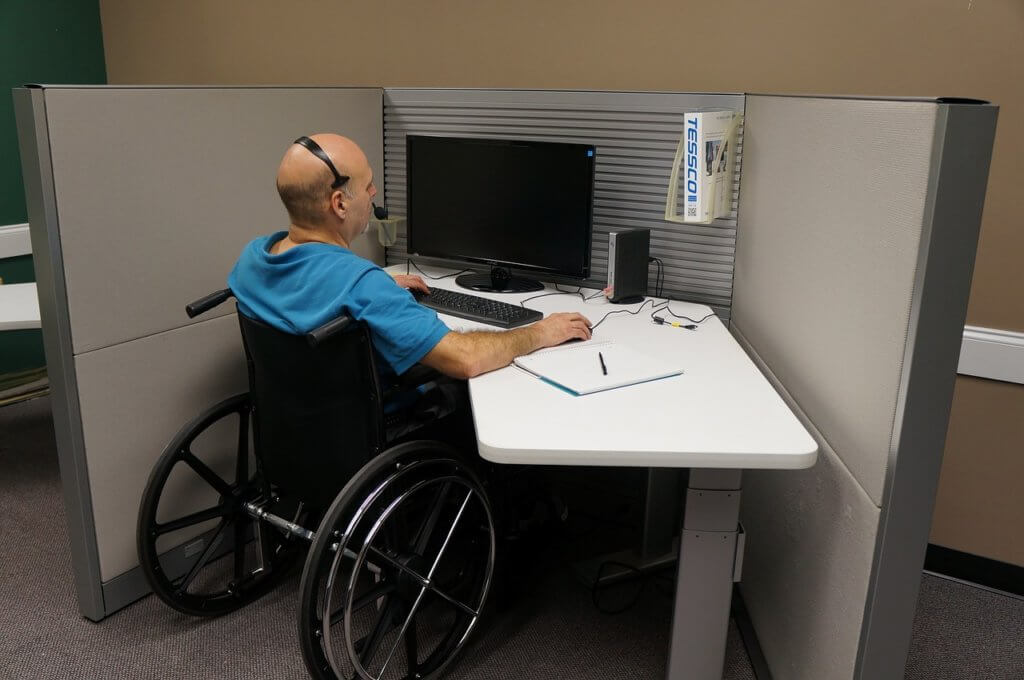Disability discrimination is defined as an employer, organization, or any other entity’s illegal action towards a disabled worker. This unlawful act occurs when the employer or company treats an employee unfavorably because of their disability. Disability discrimination can also take place when these entities show negative behavior towards a worker because of their previous or non-transitory and minor handicap. Moreover, federal law protects non-disabled employees from discrimination due to their connection with a disabled individual.
If you have been a victim of disability discrimination at work, you are entitled to file a lawsuit against your employer and seek compensation for any damages that you may have suffered during that incident.
What Are the Common Types of Disability Discrimination?
Disability discrimination cases at work can fall under two types: direct or indirect discrimination. Direct disability discrimination occurs when an individual exhibits unfavorable or hostile behavior towards a disabled individual in a particular situation. Employers can also show this type of discrimination against disabled workers through any of the following situations:
- Direct discrimination by association
- Direct discrimination by perception
This type of disability discrimination may eventually lead to a variety of adverse employment decisions against disabled applicants or workers. These employment decisions include but are not limited to:
- Non-recruitment of a disabled applicant
- Discharge of a disabled employee or worker
- Refusal to give benefits such as health care, training or job promotions to a disabled worker
- Proposition of inadequate terms and conditions
On the other hand, indirect disability discrimination takes place when a company or another entity implements a specific policy or working approach that brings an adverse effect on disabled workers. The term “indirect” merely suggests that this type of discrimination against employees is subtle, and in many instances, unintentional.
What Are Some Examples of Disability Discrimination?
Disability discrimination in the workplace can happen through numerous approaches or means. These may include the following examples:
- Discrimination towards disabled workers or job applicants in hiring, dismissal, training, job designation or promotion, and benefits, among others
- Employee harassment on the basis of their disability
- Establishment of a workplace that has significant physical obstructions to disabled individuals’ movement
- Absence of reasonable accommodation for disabled workers
Which Laws Protect Disabled Workers From Discrimination?
There are two federal laws that protect disabled employees from discrimination: The American with Disabilities Act (ADA), and The Rehabilitation Act of 1973. The Americans with Disabilities Act (ADA) prohibits any form of employer, government, agency, and union discrimination towards competent individuals with disabilities in particular employment practices. These include the following:
- Job application;
- Recruitment;
- Discharge;
- Promotion;
- Training; and
- Other related stipulations and benefits.
On the other hand, the Rehabilitation Act of 1973 forbids discrimination towards disabled people in terms of the following aspects:
- Federal agency programs;
- Federal financial aid programs;
- Federal employment; and
- Federal contractors’ employment policies or procedures.
Apart from these principal anti-discrimination laws, statutes in nearly all states consider disability discrimination as unlawful. In fact, a number of state rulings contain measures for coverage of disabled individuals that are different than the ADA’s usual standards.
How Does Federal Law Define and Interpret Disabilities?
The ADA defines a disability as an individual or a person who has the following conditions:
- A physical or mental handicap that has significant restrictions on one or more of their primary life activities;
- Any proof that they have the disability; and
- The condition that they are considered as a disabled person given their disability.
Additionally, the law stresses that the definition of disability must have an extensive explanation. It also orders the Equal Employment Opportunity Commission (EEOC) to change its ruling regarding the definition of “substantially limits.” The ADA also elaborates on additional definitions for “major life activities,” which includes the following:
- The majority of previously acknowledged activities under the law and new activities; and
- Vital bodily functions (e.g., immune system functions, regular cell growth, digestive and excretory functions)
Which Discriminatory Practices Are Considered Illegal in Terms of Disability Discrimination?
When it comes to disability discrimination in the workplace, the law deems the following practices as unlawful:
- Discrimination against disabled workers in any employment-related condition or requirement
- Employee harassment due to their existing, previous, or non-transitory and minor impairment
- Requests for applicants to answer medical-related queries or undergo a medical examination
- Inquiries on whether or not a job applicant has any form of disability or questions about the details of one’s disability if he or she has any
Seek Legal Advice From an Expert Disability Discrimination Lawyer
If you have experienced discrimination in the workplace because of your disability or your relationship with a disabled individual, you can file a disability discrimination suit against your employer. This type of legal claim allows you to seek compensation for a variety of economic and non-economic damages, which may include unpaid wages and benefit defrayal, loss of job opportunities, personal pain and suffering, and other adverse emotional and mental losses.
Furthermore, you must not attempt to settle your discrimination claim all by yourself if you decide to pursue it against your employer. You are bound to face defense lawyers who will do everything to defend their clients from these types of lawsuits, which puts you on the losing end. Thus, you should seek proper legal assistance from a competent disability discrimination lawyer.
Mesriani Law Group is a California-based law firm that provides top legal services to victims of labor law violations and personal injury cases. Our lawyers have represented numerous individuals who have filed a variety of lawsuits against erring entities in the state.
We at Mesriani Law Group are committed to defend the rights of every disabled worker and protect them from any form of disability discrimination. Thus, we will make sure that your employer will receive retribution for their discriminatory acts and give you the proper compensation that you deserve.








